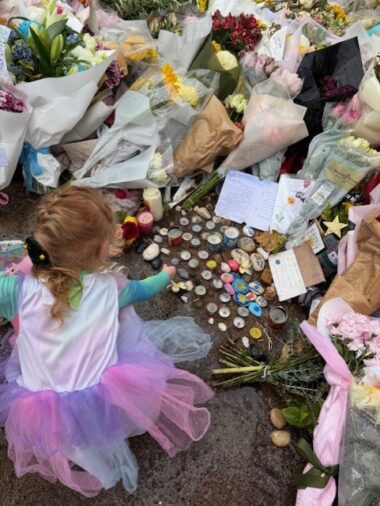The draft Advice on the National Suicide Prevention Strategy is now open for public consultation.
Today, on World Suicide Prevention Day, the National Suicide Prevention Office (NSPO) has released its draft Advice on the National Suicide Prevention Strategy which proposes a fundamental change in the way we think and act on suicide prevention.
Every day in Australia approximately 9 people die by suicide and 150 people attempt to take their own life. This is more than 3,000 deaths and 55,000 attempts each year. In addition, thousands more will experience suicidal distress or thoughts of suicide. The impacts of the loss of life, suicide attempts and suicidal distress on families and communities is devastating.
The draft Advice on the Strategy brings together first-hand evidence provided by people with lived and living experience of suicide, the latest research, and recommendations from existing inquiries and reports to lay out a path that will deliver a reduction in the number of lives lost to suicide nationally.
According to the Head of the NSPO, Dr Michael Gardner:
“People with lived experience of suicide, the data and scientific research all tell us that suicidal thoughts and behaviours are not just about mental ill-health – they are also about all the circumstances that can create feelings of helplessness, hopelessness, and entrapment. Financial stress, housing instability, domestic and family violence, childhood adversity, discrimination, and alcohol and drug harm can all play a role.”
Dr Gardner said many of these circumstances are preventable:
“Suicide prevention is currently mostly focussed on providing support at times of crises. While this is important, a more effective approach involves working to prevent people from reaching the point of suicidal distress in the first place. This involves taking proactive steps to address the socio-economic disadvantage and adversity that often drive suicidal thoughts and attempts.”
The draft Advice on the Strategy provides guidance on how governments and communities can work together to turn our improved understanding of suicide into action, with a focus on:
-
preventing suicidal distress by addressing the social and economic factors that underly it, and
-
strengthening mental health and practical support for people who do experience suicidal thoughts or behaviours.
Chair of the NSPO Advisory Board, Dr Alan Woodward, who has held leadership roles in suicide prevention for over 20 years, said:
“Despite the efforts of so many people and the growth in services and programs to prevent suicide, we have sadly not made the gains we would like to see in Australia towards reduced deaths and occasions when people attempt to end their lives. We need to do more, and we need to broaden our efforts.
The draft Advice on the Strategy has been prepared to address what happens around a person as much as what might be happening within. It shows how economic and social influences that generate suicidal distress can be foreseen and addressed much earlier through a mix of mental health and wellbeing supports for individuals and those around them. This is the approach we need to take in suicide prevention.”
Susan Edgar, Chair of the NSPO Lived Experience Partnership Group, said the Group has ensured the voices of lived and living experience have been reflected in the document.
“This work draws on extensive consultation including the voices of thousands of people with lived and living experience of suicide. It lays out the actions that need to be taken to protect our communities from the factors that cause suicidal distress in the first place, as well as to respond compassionately - across all settings - to those who need support.”
The draft Advice also recognises that a significant reduction in the rate of suicide cannot be achieved without addressing the increasing number of lives lost to suicide within Aboriginal and Torres Strait Islander communities. It has been designed to align with and reinforce the National Aboriginal and Torres Strait Islander Suicide Prevention Strategy being developed by Gayaa Dhuwi (Proud Spirit) Australia.
Ms Rachel Fishlock, Chief Executive Officer of Gayaa Dhuwi (Proud Spirit) Australia said:
“It’s great to see the draft Advice on the National Suicide Prevention Strategy seeks to emphasise Aboriginal and Torres Strait Islander concepts of social and emotional wellbeing as a key source of leadership and guidance for more holistic approaches to suicide prevention across the population. Releasing the draft Advice alongside the National Aboriginal and Torres Strait Islander Suicide Prevention Strategy will allow us collectively to reduce suicides towards zero.”
The development of the draft Advice has involved extensive consultation across the Commonwealth and states and territories and provides a framework for coordination of the reform efforts underway across the nation.
“For those whose lives have been irrevocably changed by suicide, the draft Advice provides clear direction on the way forward. It is our hope that, once consultation has been incorporated, this document will be fully implemented as the National Suicide Prevention Strategy, and supported by all governments, sectors, service providers and communities. It is time for change,” Ms Edgar said.
Public consultation on the Advice on the National Suicide Prevention Strategy (Consultation draft) is now open with submissions closing on 27th October.
To read the document and provide your feedback, please go to http://haveyoursay.mentalhealthcommission.gov.au/draft-advice-national-suicide-prevention-strategy Feedback is welcomed from individuals, service providers and communities.
- END –
Dr Michael Gardner, Susan Edgar, Alan Woodward and members of the NSPO Lived Experience Partnership Group are available for interview, please contact: Ina Mullin 0412377217 / [email protected]
Note to Editors: The way we speak about suicide and self-harm has a major influence on how the community understands and responds to people who are experiencing suicidal thoughts and behaviours. When reporting on suicide, please be mindful of using safe, inclusive language; removing method and location details; and including help-seeking pathways. For more information, please refer to the Mindframe Guidelines that were developed to support safe and accurate reporting.
Contact details:
Ina Mullin 0412377217 [email protected]

